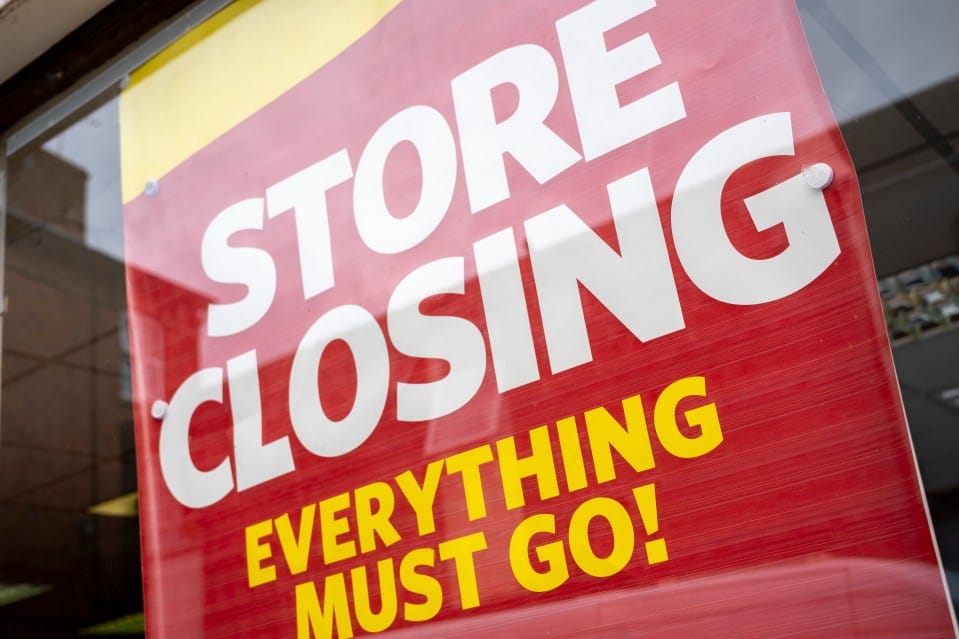Small shops could face closure without business rates reform, Co-op warns ahead of Autumn Budget
THE Co-op has warned that up to 60,000 small shops across the UK could face closure without upcoming business rates reform for small shops.
In the 2024 Autumn Budget, Chancellor Rachel Reeves promised to provide permanent business rates relief for small retail properties.
At the time, the Government proposed raising business rates on the biggest retail properties with values over £500,000.
This would allow for a discount on rates for small retail and hospitality premises to be permanent.
The government has not yet set the rates, but changes are due to take effect in April 2026.
But the Co-op is now urging the Government to commit to the maximum levels of relief for smaller stores in the upcoming Autumn Budget on November 24.
Research conducted by the supermarket found one in eight small high street business owners will be at risk of shutting down if reforms are not delivered.
A further 10% of small said they would need to lay off staff.
Shirine Khoury-Haq, Co-op group chief executive, said: “The proposed system would improve the financial situation of 99% of retailers.
“How much they are protected from tax rises depends on decisions made in this Budget. To boost local economies, create jobs and provide community cohesion, we need inclusive growth.”
“That means supporting the businesses on the corners, in the precincts, on the parades and the high streets of every community.
” In order for them to not only survive, but to thrive, the government has to commit to the maximum levels of relief.”
It comes as many larger retailers have voiced concerns over plans to increase business rates on larger stores, arguing the move could make them unprofitable or lead to price hikes.
In August, a letter signed by Morrisons, Aldi and JD Sports, warned that further tax rises on businesses could result in the Labour government breaking its manifesto pledge to provide “high living standards”.
It reads: “As retailers, we have done everything we can to shield our customers from the worst inflationary pressures but as they persist, it is becoming more and more challenging for us to absorb the cost pressures we face.”
Analysis carried out by the British Retail Consortium also suggested that 400 larger-format stores, such as department stores and supermarkets could close if the changes took place.
Many businesses have already seen their labour costs rise thanks to the rate of employer national insurance being increased in last year’s Budget.
The Treasury expects the new rates system will only impact the top 1% of properties.
A Treasury spokesperson said: “We are creating a fairer business rates system to protect the high street, support investment, and level the playing field by introducing permanently lower tax rates for retail, hospitality, and leisure properties from April that will be sustainably funded by a new, higher rate on less than 1% of the most valuable business properties.
“Unlike the current relief for these properties, there will be no cash cap on the new lower tax rates, and we have set out our long-term plans to address ‘cliff edges’ in the system to support small businesses to expand.”
RETAIL PAIN IN 2025
The British Retail Consortium has predicted that the Treasury’s hike to employer NICs will cost the retail sector £2.3billion.
Research by the British Chambers of Commerce shows that more than half of companies plan to raise prices by early April.
A survey of more than 4,800 firms found that 55% expect prices to increase in the next three months, up from 39% in a similar poll conducted in the latter half of 2024.
Three-quarters of companies cited the cost of employing people as their primary financial pressure.
The Centre for Retail Research (CRR) has also warned that around 17,350 retail sites are expected to shut down this year.
It comes on the back of a tough 2024 when 13,000 shops closed their doors for good, already a 28% increase on the previous year.
Professor Joshua Bamfield, director of the CRR said: “The results for 2024 show that although the outcomes for store closures overall were not as poor as in either 2020 or 2022, they are still disconcerting, with worse set to come in 2025.”
Professor Bamfield has also warned of a bleak outlook for 2025, predicting that as many as 202,000 jobs could be lost in the sector.
“By increasing both the costs of running stores and the costs on each consumer’s household it is highly likely that we will see retail job losses eclipse the height of the pandemic in 2020.”



